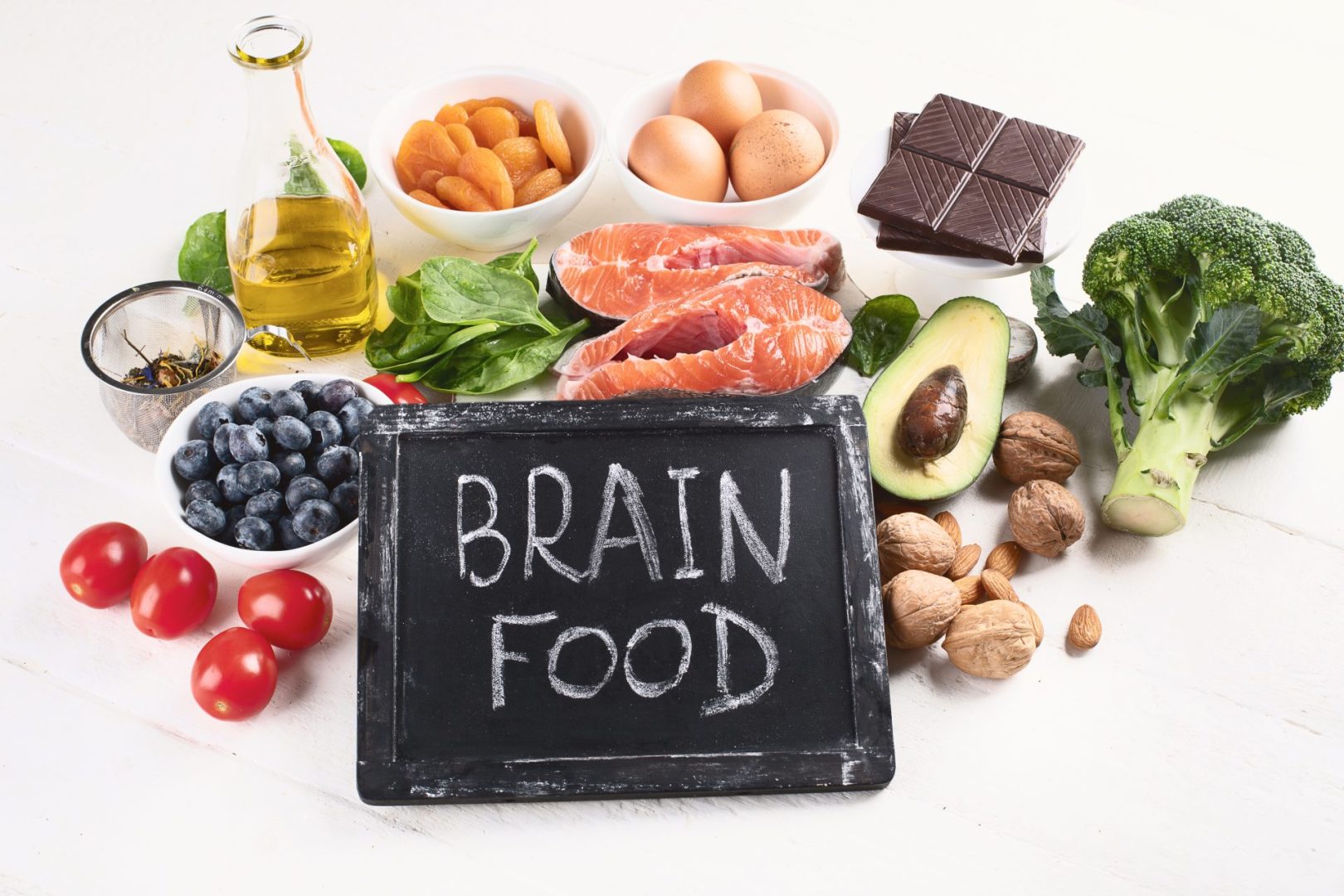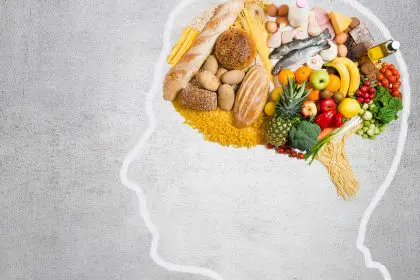The quest for maintaining optimal brain function becomes increasingly important as we age, with research consistently showing that our dietary choices play a crucial role in cognitive health. Beyond puzzles and memory games, the foods we consume daily can either support or undermine our brain’s ability to function at its best. Neuroscience research from leading institutions continues to reveal the profound connection between specific nutrients and brain cell health, offering practical guidance for anyone concerned about preserving their mental sharpness.
Recent advancements in nutritional neuroscience have identified specific compounds that appear particularly beneficial for cognitive function. These discoveries have led to evidence-based dietary recommendations that move beyond general advice to pinpoint exactly which foods deliver the most protective benefits for our neural networks. By incorporating these strategic food choices into regular meal planning, individuals can potentially slow cognitive decline and support optimal brain performance throughout life.
The science behind brain-nourishing nutrients
The brain, despite representing only about 2% of total body weight, consumes approximately 20% of the body’s energy resources. This metabolically demanding organ requires specific nutrients to maintain its complex functions, from processing sensory information to storing memories and regulating emotions. Nutritional deficiencies can impair these functions, while optimal nutrition supports neuronal health and cognitive performance.
Omega-3 fatty acids stand at the forefront of brain-supporting nutrients. These essential fats, particularly EPA and DHA, form critical components of brain cell membranes and facilitate communication between neurons. Research indicates that higher omega-3 intake correlates with better cognitive outcomes and potentially slower rates of age-related decline. These fatty acids appear to reduce neuroinflammation—a key factor in many neurodegenerative conditions—while supporting structural integrity of brain cells.
The family of B vitamins plays equally important roles in cognitive health. Vitamins B6, B9 (folate), and B12 help regulate homocysteine levels in the bloodstream. When elevated, homocysteine acts as a neurotoxin associated with cognitive impairment and increased risk of dementia. Adequate B vitamin intake helps maintain optimal neurotransmitter production and supports DNA repair mechanisms within brain cells, both essential for cognitive function.
Antioxidants represent another critical category of brain-protective compounds. The brain’s high oxygen consumption makes it particularly vulnerable to oxidative stress—cellular damage caused by free radicals. Antioxidants neutralize these harmful molecules, preventing damage to delicate neural tissues. Compounds like flavonoids, carotenoids, and vitamin E appear particularly beneficial for preserving cognitive function as we age.
Emerging research highlights additional nutrients that support brain health. Choline serves as a precursor to acetylcholine, a neurotransmitter essential for memory formation. Lutein, traditionally associated with eye health, appears to accumulate in brain tissue where it protects against oxidative damage. Polyphenols improve cerebral blood flow and reduce inflammation, while potassium helps maintain electrical conductivity essential for neural signaling.
The top 15 foods for optimal brain function
- Fatty fish like salmon deliver exceptional brain benefits through their rich omega-3 fatty acid content. Wild-caught salmon provides approximately 2.2 grams of omega-3s per 3-ounce serving—surpassing the weekly recommended intake in just two meals. Regular consumption has been linked to improved cognitive performance in multiple studies, with evidence suggesting potential benefits for delaying age-related mental decline.
- Avocados offer monounsaturated fats that support healthy blood flow—a critical factor in brain health since the brain receives 15-20% of the body’s total blood supply. One medium avocado provides approximately 13-20% of daily vitamin K requirements, which helps preserve cognitive function through its role in brain cell membrane formation. Their high potassium content also helps maintain healthy blood pressure, supporting optimal cerebral circulation.
- Dark chocolate with high cacao content (70% or higher) contains flavanols that increase blood flow to the brain and may enhance cognitive function. Research indicates that these compounds penetrate and accumulate in brain regions involved in learning and memory. For maximum benefits, nutrition experts recommend limiting consumption to approximately one ounce daily, focusing on varieties with minimal added sugar and high cacao percentages.
- Pistachios provide a powerful combination of protein, fiber, and healthy fats alongside brain-supporting nutrients. These nuts contain resveratrol and other antioxidants that help combat oxidative stress in neural tissues. Their unique purple-green color indicates the presence of anthocyanins—powerful antioxidants that may help preserve memory function. A one-ounce serving (approximately 49 nuts) delivers meaningful amounts of vitamin B6, essential for neurotransmitter synthesis.
- Wild blueberries, distinguished from their larger cultivated counterparts by their more intense color and flavor, contain extraordinarily high concentrations of anthocyanins. These compounds readily cross the blood-brain barrier and accumulate in areas associated with memory and learning. Research indicates that regular consumption may delay cognitive aging by up to 2.5 years in some study participants. Their smaller size means more skin per volume—and consequently higher antioxidant content—compared to conventional blueberries.
- Spinach provides an impressive nutritional profile for brain health, offering vitamin K, lutein, folate, and beta carotene. Just one cup of raw spinach delivers 121 micrograms of folate—approximately 30% of the daily recommended intake. Longitudinal studies suggest that regular leafy green consumption correlates with slower cognitive decline, potentially adding protection equivalent to being 11 years younger cognitively. Its versatility makes it easy to incorporate into smoothies, salads, or cooked dishes.
- Beans and legumes deliver a powerful combination of brain-supporting nutrients. Their high fiber content helps regulate glucose release, providing steady energy to fuel brain function. Black beans and lentils offer particularly impressive folate levels—half a cup provides approximately 32% of daily needs. This B vitamin plays a crucial role in neurotransmitter regulation and DNA synthesis in the brain. The plant proteins in beans also provide essential amino acids required for neurotransmitter production.
- Pumpkin seeds pack exceptional nutritional density in a small package. Just one ounce (about 85 seeds) provides nearly 40% of the daily magnesium requirement—a mineral involved in over 300 enzymatic reactions in the brain. Magnesium regulates glutamate activation in nerve cells, protecting against excitotoxicity that can damage neurons. Additionally, pumpkin seeds offer zinc, copper, and iron—minerals essential for cognitive function and neurotransmitter synthesis.
- Eggs contain choline, a nutrient that serves as a building block for acetylcholine—a neurotransmitter involved in memory and muscle control. The egg yolk delivers approximately 147 milligrams of choline, addressing a significant portion of the 425-550 milligram daily recommendation. Research indicates that higher choline intake correlates with better cognitive performance and potentially reduced risk of dementia. Eggs also provide B vitamins and selenium that support overall brain health.
- Green tea contains a combination of caffeine and L-theanine that appears uniquely beneficial for brain function. While caffeine increases alertness, L-theanine promotes relaxation without drowsiness—creating balanced stimulation. The catechins in green tea, particularly EGCG, have demonstrated neuroprotective properties in research studies. Regular consumption has been associated with reduced risk of cognitive decline and improved attention and memory function.
- Broccoli delivers sulforaphane, a compound that activates the body’s detoxification processes and reduces inflammation in brain tissue. This cruciferous vegetable provides approximately 100% of the recommended daily vitamin K intake in just one cup. Research suggests that vitamin K plays a critical role in forming sphingolipids—specialized fats densely present in brain cell membranes. Additionally, broccoli offers chromium, which helps regulate blood glucose levels for optimal brain energy.
- Trout serves as an excellent omega-3 source with potentially lower mercury exposure than larger fish species. A three-ounce serving provides approximately 1.7 grams of omega-3 fatty acids—particularly important for brain development and maintenance. Studies indicate that consistent fish consumption correlates with increased gray matter volume in brain regions associated with memory and cognition. Trout also delivers vitamin D, increasingly recognized for its role in cognitive function and mood regulation.
- Corn tortillas made through traditional nixtamalization processes offer more than cultural heritage—they provide bioavailable lutein and zeaxanthin that accumulate in brain tissue. These carotenoids protect neurons from oxidative damage while supporting efficient neural communication. The traditional lime processing increases calcium availability, supporting the electrical signaling essential for cognitive function. Their low glycemic impact helps maintain steady glucose levels for optimal brain energy.
- Chia seeds deliver impressive amounts of alpha-linolenic acid (ALA), a plant-based omega-3 fatty acid. Two tablespoons provide approximately 5 grams of ALA—significant considering the recommended daily intake ranges from 1.1 to 1.6 grams. While the body converts ALA to EPA and DHA with variable efficiency, consistent consumption appears beneficial for cognitive health. The seeds also provide complete protein containing all essential amino acids needed for neurotransmitter synthesis.
- Tomatoes contain lycopene, a powerful antioxidant that helps protect brain cells from oxidative damage. This compound becomes more bioavailable when tomatoes are cooked with healthy fats like olive oil. Research indicates that lycopene may help preserve cognitive function by reducing inflammatory processes in brain tissue. Tomatoes also provide vitamin C, potassium, and folate—nutrients that support overall brain health through various mechanisms from neurotransmitter synthesis to blood pressure regulation.
Practical ways to incorporate brain-boosting foods
Transforming nutritional knowledge into dietary habits requires practical strategies for incorporating these brain-supporting foods into everyday meals. Nutrition professionals recommend approaching this as a gradual process of adding beneficial options rather than focusing primarily on restriction.
Morning routines offer excellent opportunities for brain-healthy choices. Overnight chia seed pudding prepared with almond milk and topped with wild blueberries delivers omega-3s, antioxidants, and protein to start the day. Alternatively, eggs scrambled with spinach and served with avocado create a powerful combination of choline, lutein, and healthy fats that support cognitive function throughout the morning.
Lunch planning with brain health in mind might include bean-based soups enriched with tomatoes and dark leafy greens, providing plant protein, fiber, and numerous neuroprotective compounds. Whole grain wraps filled with omega-rich salmon or trout, alongside colorful vegetables, deliver midday brain nutrition in a convenient format suitable for work environments.
Evening meals centered around fatty fish two to three times weekly establish a foundation for brain health. Tamarind maple-glazed salmon offers a delicious preparation method that increases compliance with fish consumption recommendations. For plant-based options, bean and lentil dishes with abundant vegetables and seeds provide alternative pathways to essential nutrients.
Strategic snacking presents additional opportunities for cognitive nutrition. A small handful of pistachios with dark chocolate provides satisfying texture alongside flavanols and healthy fats. Alternatively, yogurt topped with pumpkin seeds and berries delivers probiotics (increasingly linked to cognitive function through the gut-brain axis) alongside essential minerals and antioxidants.
Beverage choices significantly impact brain health. Replacing one daily coffee with green tea introduces L-theanine alongside gentler caffeine stimulation. Smoothies combining spinach, wild blueberries, and chia seeds transform multiple brain-supporting foods into a convenient format, particularly beneficial for those who struggle with vegetable consumption in traditional forms.
Foods and behaviors that undermine brain health
While incorporating beneficial foods forms the cornerstone of a brain-healthy diet, certain substances appear particularly problematic for cognitive function. Understanding these potential detriments helps create an eating pattern that actively supports brain health rather than undermining it.
Alcohol consumption presents complex considerations for brain health. While some research suggests potential benefits from very limited red wine intake (likely due to resveratrol content), evidence increasingly points toward any alcohol consumption as potentially detrimental to brain structure over time. Recent neuroimaging studies reveal alcohol-related reductions in gray and white matter volume even with moderate consumption, challenging previous assumptions about “safe” levels.
Added sugar consumption affects cognitive function through multiple mechanisms. Beyond contributing to insulin resistance that impairs brain energy metabolism, excessive sugar appears to reduce production of brain-derived neurotrophic factor (BDNF)—a protein essential for forming new neural connections. Observational studies link higher sugar consumption with poorer memory performance and smaller hippocampal volume—a brain region crucial for memory formation.
Ultra-processed foods typically combine problematic ingredients—refined carbohydrates, industrial seed oils high in omega-6 fatty acids, artificial additives, and minimal beneficial nutrients. Regular consumption correlates with increased systemic inflammation that affects brain tissue and potentially accelerates cognitive aging. The convenient nature of these products often displaces nutrient-dense alternatives that would otherwise support brain health.
Industrial trans fats, though decreasing in the food supply due to regulatory changes, remain in some processed products and restaurant foods. These modified fats appear particularly damaging to brain health, with research linking higher consumption to increased cognitive decline and smaller brain volume. Their ability to promote inflammation and oxidative stress makes them particularly problematic for neural tissue.
Excessive sodium intake affects brain health primarily through its impact on vascular function and blood pressure regulation. Hypertension damages delicate blood vessels supplying the brain, potentially leading to reduced cognitive performance over time. Processed and restaurant foods often contain surprisingly high sodium levels that can exceed recommended daily limits in just a few meals.
The broader context of cognitive health
While nutrition plays a critical role in brain health, cognitive function exists within a broader lifestyle context that includes physical activity, sleep quality, stress management, and social connection. Research increasingly demonstrates that these factors work synergistically with nutrition to support brain function across the lifespan.
Regular physical exercise appears particularly beneficial for brain health through multiple mechanisms. Aerobic activity increases cerebral blood flow, promotes growth of new blood vessels in the brain, and stimulates production of BDNF that supports formation of new neural connections. Even modest amounts of movement—approximately 150 minutes of moderate activity weekly—appear protective against cognitive decline.
Sleep quality directly impacts cognitive performance through its role in memory consolidation and neural waste clearance. During deep sleep, the brain’s glymphatic system removes potentially harmful proteins including beta-amyloid, while simultaneously strengthening important neural connections formed during the day. Prioritizing consistent, high-quality sleep complements nutritional strategies for brain health.
Stress management practices support cognitive function by regulating cortisol levels that, when chronically elevated, can damage the hippocampus and impair memory formation. Mindfulness practices, including meditation and conscious breathing exercises, appear particularly beneficial through their ability to reduce physiological markers of stress while improving attention and cognitive flexibility.
Social connections provide cognitive stimulation while potentially reducing stress hormone levels. Regular meaningful interaction appears protective against cognitive decline, with some research suggesting that social isolation may represent a risk factor comparable to physical inactivity. Building and maintaining strong social networks complements nutritional approaches to brain health.
Cognitive stimulation through lifelong learning and novel experiences helps build cognitive reserve—the brain’s resilience against age-related changes or pathology. Activities that combine mental challenge, physical movement, and social interaction (like dance classes or group sports) offer particularly powerful benefits by simultaneously addressing multiple domains of brain health.
The cumulative impact of these lifestyle factors alongside nutrition creates either a supportive or challenging environment for brain health. Those seeking to optimize cognitive function benefit most from addressing multiple aspects simultaneously rather than focusing exclusively on dietary changes. This comprehensive approach acknowledges the interconnected nature of brain health factors while providing multiple pathways for intervention.
As research continues advancing our understanding of brain health, nutrition remains a foundational element we can directly control daily. By strategically incorporating beneficial foods while minimizing those that undermine cognitive function, we provide our brains with both the structural components and protective compounds needed for optimal performance across the lifespan. This nutrition-first approach, complemented by broader lifestyle considerations, offers a practical roadmap for maintaining cognitive function through the aging process.















